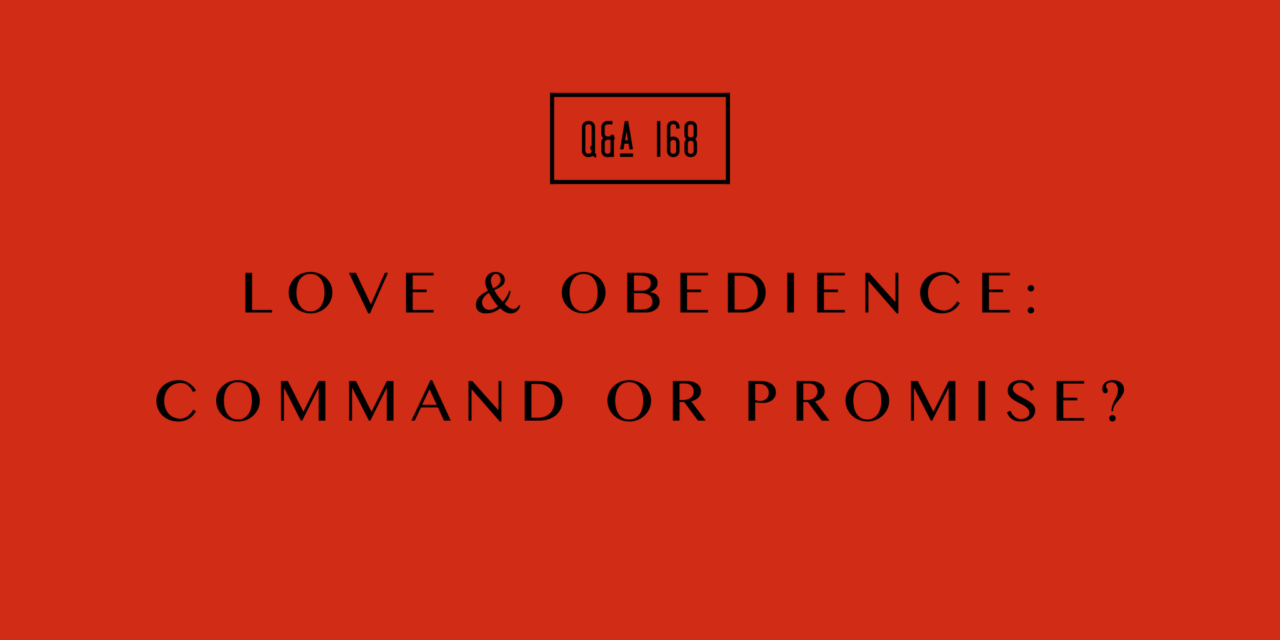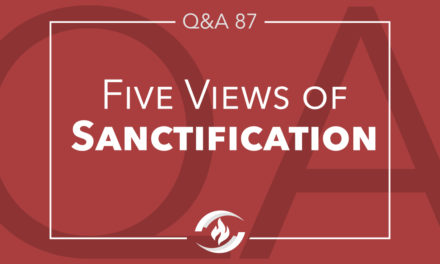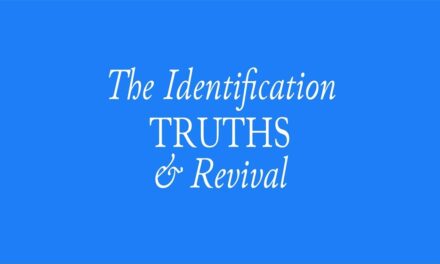Q.
Question: John 14:15 I’m so torn by this verse and two lines of thought. Is it something I do, or is it something I’m enabled to do. Or is it both.
Randy
A.
Hello Randy,
Thanks for your heartfelt question. In John 14:15, Jesus said, “If ye love me, keep my commandments.” A man in one of my meetings once exclaimed despairingly of this verse, “That verse constantly slays me!” We read, “If ye love me, keep my commandments.” But that’s just what we can’t seem to do.
Thankfully, the context of John 14 solves this perplexing dilemma. In John 14-16, Jesus tells His disciples that He is leaving but the Holy Spirit is coming. He explains in these precious chapters just before the cross what life will be like when the Spirit comes. Further in the context of John 14, Jesus said, ”If a man love me, he will keep my words” (John 14:23).
Two very similar statements, but verse 15 is an imperative and verse 23 is a promise. Which one is it? There is actually a debate on whether verse 15 is an imperative or a future tense indicative. Key to interpretation is the hermeneutic that you must interpret the unclear in light of the clear. Another way of saying this is that you must interpret the debatable in the light of the undebatable.
The use of the second person plural in verse 15 can actually go either way. It could be, “If ye love me, keep my commandments.” Or, it could be, “If you love Me, you will keep my commandments.” But in verse 23, the use of the third person singular can only be translated one way, ”If a man love me, he will keep my words.” You cannot turn a third person singular into an imperative mid-sentence, because you cannot say, “If a man love Me, keep My words.” Therefore, the weight of the context sides with this statement in verse 15 being understood as a promise, “If you love Me, you will keep My commandments.” The undebatable statement in verse 23 settles the debate in verse 15.
Theologically, the analogy of faith supports this conclusion as well. If this is a command, then we are left with a performance-based attempt to show our love for Jesus, which we tragically don’t do a good job at. But if this is a promise, then we are left with hope. If this is a command, we are left with us trying to obey the command, which is self-dependence. But if this is a promise, then we are left with us trusting in Jesus to fulfill His promise, which is God-dependence. If this is a command, then the focus is on a system of all we must do to obey. But if this is a promise, then the focus is on Jesus, the right object of faith. If this is a command, then the power is us. But if this is a promise, then the power is Jesus. If this is a command, then we experience the bondage of being on our own. But if this is a promise, then we can experience freedom, because through faith in the promise, Jesus enables us to obey.
The key to obeying all the various commandments is the first commandment—to love the Lord with all our hearts. When you love Jesus you choose Jesus, when you choose Jesus you take Him at His word (you receive His words), when you depend on Jesus by taking Him at His word He enables you, when He enables you then you are empowered to obey (John 14:21). Love implies trust and trust (faith) accesses grace.
Love, trust, obey. When you understand verse 15 as a promise, then verses 16-22, make perfect sense. If you love Me, you will keep My commandments—because I’m sending the Holy Spirit to live in you, and He will lead you and empower you from the inside out. When you love Jesus you live Jesus through the ministry of the Spirit imparting to you the obedient life of Jesus.
It’s a promise!
We’d love to hear your thoughts on this subject in the comments section below! If you have a question on another subject, we welcome you to make a submission by clicking here:












Companion verses come to my mind: Phil. 2: 12-13 – First, the “impossible” command “Work out your own salvation with fear and trembling”. Then the wonderful balm: “For it is God which worketh in you both to will AND TO DO of His good pleasure.” [John 15:5 – You can do nothing without me”] And: 1 John 3: 20 – “For if our heart condemn us, God is greater than our heart, and knoweth all things.” [ Then… look at v. 22: whatever we ask, we receive of Him, because we keep His commandments…”! That is only as we are… Read more »